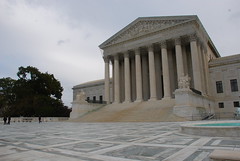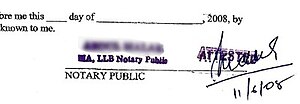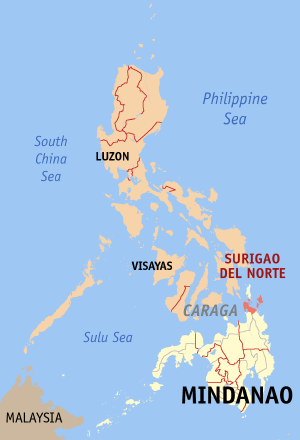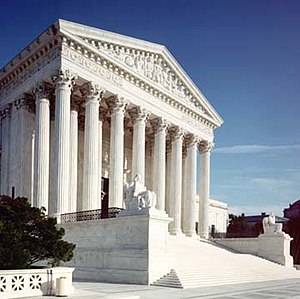Premature election campaigning in the PhilippinesWarning to all candidates:
SC takes a hard stance on premature campaigning
By
Atty. Rey D. Cartojano
The widespread perception is that our election laws are not enforced but ineffective as well. Take for instance the issue of premature campaigning where politicians have long taken for granted. The issue is further exacerbated by the fact that most Filipinos think the COMELEC. although many will also disagree, as a lame duck body which cannot implement our election laws.
Last 11 September 2009, the
Supreme Court caught many by surprise with its majority ruling in ROSALINDA A. PENERA vs. COMMISSION ON ELECTIONS and EDGAR T. ANDANAR, G. R. No. 181613,penned by Associate Justice Chico-Nazario, disqualifying an elected local mayor for premature campaigning. Yes, believe you, of all election violations and offenses, premature campaigning! The decision came at a time when politicians of all colors wantonly desecrate
mainstream media of all exposures that even a toddler will easily qualify them as
political campaigns.
Circa, 2007 Synchronized National and Local Elections. Place, Town of Sta. Monica, Surigao Del Norte. Protagonists. Mayoralty candidates Rosalinda Penera and Edgar Andanar.
As found by COMELEC, on the afternoon of 29 March 2007, the 1st day to file the certificates of candidacy for local elective positions and a day before the start of the campaign period for the May 14, 2007 elections, mayoralty candidate “Datty” Penera and her local line-up, accompanied by their supporters, filed their respective Certificates of Candidacy before the Municipal Election Officer of Sta. Monica,
Surigao del Norte
Penera and company came to the municipal COMELEC office on board a convoy of two (2) trucks and an undetermined number of motorcycles, laden with balloons and posters/banners containing names and pictures and the municipal positions for which they were seeking election. Installed in one of the trucks was a public speaker sound subsystem which broadcast their intent to run in the coming elections. The truck had the posters of Penera attached to it proclaiming her candidacy for mayor. The streamer of Mar Longos, a candidate for the position of Board Member, was proudly seen at the vehicle’s side. The group proceeded to motorcade until the barangays of Bailan, Libertad and as far as Mabini almost nine (9) kilometers from Sta. Monica. Penera and her partymates were seen aboard the vehicles and throwing candies to the residents and onlookers.
The above-named acts, admitted by Penera, were put in issue by our protagonists, whether they constituted premature campaigning. The COMELEC found premature campaigning and disqualified Penera.
When the case reached the Supreme Court, the issue among others polarized the High Tribunal but by a slim 8-7 majority, the COMELEC ruling was upheld.
The following are pertinent excerpts of the majority ruling:
"The prohibited act of premature campaigning is defined under Section 80 of the Omnibus Election Code, to wit:
"SECTION 80. Election campaign or partisan political activity outside campaign period. — It shall be unlawful for any person, whether or not a voter or candidate, or for any party, or association of persons, to engage in an election campaign or partisan political activity except during the campaign period: Provided, That political parties may hold political conventions or meetings to nominate their official candidates within thirty days before the commencement of the campaign period and forty-five days for Presidential and Vice-Presidential election. (Emphasis ours.)
"If the commission of the prohibited act of premature campaigning is duly proven, the consequence of the violation is clearly spelled out in Section 68 of the said Code, which reads:
"SECTION. 68. Disqualifications. - Any candidate who, in an action or protest in which he is a party is declared by final decision of a competent court guilty of, or found by the Commission of having xxx (e) violated any of Sections 80, 83, 85, 86 and 261, paragraphs d, e, k, v, and cc, subparagraph 6, shall be disqualified from continuing as a candidate, or if he has been elected, from holding the office. Any person who is a permanent resident of or an immigrant to a foreign country shall not be qualified to run for any elective office under this Code, unless said person has waived his status as permanent resident or immigrant of a foreign country in accordance with the residence requirement provided for in the election laws.
"In the case at bar, it had been sufficiently established, not just by Andanar’s evidence, but also those of Penera herself, that Penera and her partymates, after filing their COCs on 29 March 2007, participated in a motorcade which passed through the different barangays of Sta. Monica, waived their hands to the public, and threw candies to the onlookers.
"For violating Section 80 of the Omnibus Election Code, proscribing election campaign or partisan political activity outside the campaign period, Penera must be disqualified from holding the office of Mayor of Sta. Monica.
"The dissenting opinion, however, raises the legal issue that Section 15 of
Republic Act No. 8436, as amended by Republic Act No. 9369, provides a new definition of the term “candidate,” as a result of which, premature campaigning may no longer be committed.
"Under Section 79(a) of the Omnibus Election Code, a candidate is “any person aspiring for or seeking an elective public office, who has filed a certificate of candidacy by himself or through an accredited
political party, aggroupment, or coalition of parties.”
"Republic Act No. 8436, enacted on 22 December 1997, authorized the COMELEC to use an automated election system for the process of
voting, counting of votes, and canvassing/consolidating the results of the national and local elections. The statute also mandated the COMELEC to acquire automated counting machines, computer equipment, devices and materials; and to adopt new electoral forms and printing materials. In particular, Section 11 of Republic Act No. 8436 provided for the specifications of the official ballots to be used in the automated election system and the guidelines for the printing thereof, the relevant portions of which state:
"SECTION 11. Official ballot. - The Commission shall prescribe the size and form of the official ballot which shall contain the titles of the positions to be filled and/or the propositions to be voted upon in an initiative,
referendum or plebiscite. Under each position, the names of candidates shall be arranged alphabetically by surname and uniformly printed using the same type size. A fixed space where the chairman of the Board of Election inspectors shall affix his/her signature to authenticate the official ballot shall be provided.
"Both sides of the ballots may be used when necessary.
"For this purpose, the deadline for the filing of certificate of candidacy/petition for registration/manifestation to participate in the election shall not be later than one hundred twenty (120) days before the elections: Provided, That, any elective official, whether national or local, running for any office other than the one which he/she is holding in a permanent capacity, except for president and vice-president, shall be deemed resigned only upon the start of the campaign period corresponding to the position for which he/she is running: Provided, further, That, unlawful acts or omissions applicable to a candidate shall take effect upon the start of the aforesaid campaign period: Provided, finally, That, for purposes of the May 11, 1998 elections, the deadline for filing of the certificate of candidacy for the positions of
President, Vice President, Senators and candidates under the Party-List System as well as petitions for registration and/or manifestation to participate in the Party-List System shall be on February 9, 1998 while the deadline for the filing of certificate of candidacy for other positions shall be on March 27, 1998. (Emphases ours.)
"On 10 February 2007, Republic Act No. 9369 took effect. Section 13 of Republic Act No. 9369 amended Section 11 of Republic Act No. 8436 and renumbered the same as the new Section 15 of Republic Act No. 8436. The pertinent portions of Section 15 of Republic Act No. 8436, as amended by Republic Act No. 9369, now read:
"SECTION.15. Official Ballot. - The Commission shall prescribe the format of the electronic display and/or the size and form of the official ballot, which shall contain the titles of the position to be filled and/or the proposition to be voted upon in an initiative, referendum or plebiscite. Where practicable, electronic displays must be constructed to present the names of all candidates for the same position in the same page or screen, otherwise, the electronic displays must be constructed to present the entire ballot to the voter, in a series of sequential pages, and to ensure that the voter sees all of the ballot options on all pages before completing his or her vote and to allow the voter to review and change all ballot choices prior to completing and casting his or her ballot. Under each position to be filled, the names of candidates shall be arranged alphabetically by surname and uniformly indicated using the same type size. The maiden or married name shall be listed in the official ballot, as preferred by the female candidate. Under each proposition to be vote upon, the choices should be uniformly indicated using the same font and size.
"A fixed space where the chairman of the board of election inspector shall affix her/her signature to authenticate the official ballot shall be provided.
"For this purpose, the Commission shall set the deadline for the filing of certificate of candidacy/petition of registration/manifestation to participate in the election. Any person who files his certificate of candidacy within this period shall only be considered as a candidate at the start of the campaign period for which he filed his certificate of candidacy: Provided, That, unlawful acts or omissions applicable to a candidate shall effect only upon the start of the aforesaid campaign period: Provided, finally, That any person holding a public appointive office or position, including active members of the armed forces, and officers, and employees in government-owned or-controlled corporations, shall be considered ipso factor resigned from his/her office and must vacate the same at the start of the day of the filing of his/her certification of candidacy. (Emphases ours.)
"In view of the third paragraph of Section 15 of Republic Act No. 8436, as amended, the Dissenting Opinion argues that Section 80 of the Omnibus Election Code can not be applied to the present case since, as the Court held in Lanot v. Commission on Elections, the election campaign or partisan activity, which constitute the prohibited premature campaigning, should be designed to promote the election or defeat of a particular candidate or candidates. Under present election laws, while a person may have filed his/her COC within the prescribed period for doing so, said person shall not be considered a candidate until the start of the campaign period. Thus, prior to the start of the campaign period, there can be no election campaign or partisan political activity designed to promote the election or defeat of a particular candidate to public office because there is no candidate to speak of.
"According to the Dissenting Opinion, even if Penera’s acts before the start of the campaign period constitute election campaigning or partisan political activities, these are not punishable under Section 80 of the Omnibus Election Code given that she was not yet a candidate at that time. On the other hand, Penera’s acts, if committed within the campaign period, when she was already a candidate, are likewise not covered by Section 80 as this provision punishes only acts outside the campaign period.
"The Dissenting Opinion ultimately concludes that because of Section 15 of Republic Act No. 8436, as amended, the prohibited act of premature campaigning in Section 80 of the Omnibus Election Code, is practically impossible to commit at any time.
"We disagree. Section 80 of the Omnibus Election Code remains relevant and applicable despite Section 15 of Republic Act No. 8436, as amended.
"A close reading of the entire Republic Act No. 9369, which amended Republic Act No. 8436, would readily reveal that that it did not contain an express repeal of Section 80 of the Omnibus Election Code. An express repeal is one wherein a statute declares, usually in its repealing clause, that a particular and specific law, identified by its number or title, is repealed. Absent this specific requirement, an express repeal may not be presumed.
"Although the title of Republic Act No. 9369 particularly mentioned the amendment of Batas Pambansa Blg. 881, or the Omnibus Election Code, to wit:
"An Act Amending Republic Act No. 8436, Entitled "An Act Authorizing the Commission on Elections to Use an Automated Election System x x x, Amending for the Purpose Batas Pambansa Blg. 881, As Amended x x x. (Emphasis ours.),
said title explicitly mentions, not the repeal, but the amendment of Batas Pambansa Blg. 881. Such fact is indeed very material. Repeal of a law means its complete abrogation by the enactment of a subsequent statute, whereas the amendment of a statute means an alteration in the law already existing, leaving some part of the original still standing. Section 80 of the Omnibus Election Code is not even one of the specific provisions of the said code that were expressly amended by Republic Act No. 9369.
"Additionally, Section 46, the repealing clause of Republic Act No. 9369, states that:
"Sec. 46. Repealing Clause. – All laws, presidential decrees, executive orders, rules and regulations or parts thereof inconsistent with the provisions of this Act are hereby repealed or modified accordingly.
"Section 46 of Republic Act No. 9369 is a general repealing clause. It is a clause which predicates the intended repeal under the condition that a substantial conflict must be found in existing and prior acts. The failure to add a specific repealing clause indicates that the intent was not to repeal any existing law, unless an irreconcilable inconsistency and repugnancy exist in the terms of the new and old laws. This latter situation falls under the category of an implied repeal.
"Well-settled is the rule in statutory construction that implied repeals are disfavored. In order to effect a repeal by implication, the later statute must be so irreconcilably inconsistent and repugnant with the existing law that they cannot be made to reconcile and stand together. The clearest case possible must be made before the inference of implied repeal may be drawn, for inconsistency is never presumed. There must be a showing of repugnance clear and convincing in character. The language used in the later statute must be such as to render it irreconcilable with what had been formerly enacted. An inconsistency that falls short of that standard does not suffice.
"Courts of justice, when confronted with apparently conflicting statutes, should endeavor to reconcile the same instead of declaring outright the invalidity of one as against the other. Such alacrity should be avoided. The wise policy is for the judge to harmonize them if this is possible, bearing in mind that they are equally the handiwork of the same legislature, and so give effect to both while at the same time also according due respect to a coordinate department of the government.
"To our mind, there is no absolute and irreconcilable incompatibility between Section 15 of Republic Act No. 8436, as amended, and Section 80 of the Omnibus Election Code, which defines the prohibited act of premature campaigning. It is possible to harmonize and reconcile these two provisions and, thus, give effect to both.
"First, Section 80 of the Omnibus Election Code, on premature campaigning, explicitly provides that “[i]t shall be unlawful for any person, whether or not a voter or candidate, or for any party, or association of persons, to engage in an election campaign or partisan political activity, except during the campaign period.” Very simply, premature campaigning may be committed even by a person who is not a candidate.
"For this reason, the plain declaration in Lanot that “[w]hat Section 80 of the Omnibus Election Code prohibits is ‘an election campaign or partisan political activity’ by a ‘candidate’ ‘outside’ of the campaign period,” is clearly erroneous.
"Second, Section 79(b) of the Omnibus Election Code defines election campaign or partisan political activity in the following manner:
"SECTION 79. Definitions. - As used in this Code:
x x x x
(b) The term "election campaign" or "partisan political activity" refers to an act designed to promote the election or defeat of a particular candidate or candidates to a public office which shall include:
(1) Forming organizations, associations, clubs, committees or other groups of persons for the purpose of soliciting votes and/or undertaking any campaign for or against a candidate;
(2) Holding political caucuses, conferences, meetings, rallies, parades, or other similar assemblies, for the purpose of soliciting votes and/or undertaking any campaign or propaganda for or against a candidate;
(3) Making speeches, announcements or commentaries, or holding interviews for or against the election of any candidate for public office;
(4) Publishing or distributing campaign literature or materials designed to support or oppose the election of any candidate; or
(5) Directly or indirectly soliciting votes, pledges or support for or against a candidate.
"True, that pursuant to Section 15 of Republic Act No. 8436, as amended, even after the filing of the COC but before the start of the campaign period, a person is not yet officially considered a candidate. Nevertheless, a person, upon the filing of his/her COC, already explicitly declares his/her intention to run as a candidate in the coming elections. The commission by such a person of any of the acts enumerated under Section 79(b) of the Omnibus Election Code (i.e., holding rallies or parades, making speeches, etc.) can, thus, be logically and reasonably construed as for the purpose of promoting his/her intended candidacy.
"When the campaign period starts and said person proceeds with his/her candidacy, his/her intent turning into actuality, we can already consider his/her acts, after the filing of his/her COC and prior to the campaign period, as the promotion of his/her election as a candidate, hence, constituting premature campaigning, for which he/she may be disqualified. Also, conversely, if said person, for any reason, withdraws his/her COC before the campaign period, then there is no point to view his/her acts prior to said period as acts for the promotion of his/her election as a candidate. In the latter case, there can be no premature campaigning as there is no candidate, whose disqualification may be sought, to begin with.
"Third, in connection with the preceding discussion, the line in Section 15 of Republic Act No. 8436, as amended, which provides that “any unlawful act or omission applicable to a candidate shall take effect only upon the start of the campaign period,” does not mean that the acts constituting premature campaigning can only be committed, for which the offender may be disqualified, during the campaign period. Contrary to the pronouncement in the dissent, nowhere in the said proviso was it stated that campaigning before the start of the campaign period is lawful, such that the offender may freely carry out the same with impunity.
"As previously established, a person, after filing his/her COC but prior to his/her becoming a candidate (thus, prior to the start of the campaign period), can already commit the acts described under Section 79(b) of the Omnibus Election Code as election campaign or partisan political activity. However, only after said person officially becomes a candidate, at the beginning of the campaign period, can said acts be given effect as premature campaigning under Section 80 of the Omnibus Election Code. Only after said person officially becomes a candidate, at the start of the campaign period, can his/her disqualification be sought for acts constituting premature campaigning. Obviously, it is only at the start of the campaign period, when the person officially becomes a candidate, that the undue and iniquitous advantages of his/her prior acts, constituting premature campaigning, shall accrue to his/her benefit. Compared to the other candidates who are only about to begin their election campaign, a candidate who had previously engaged in premature campaigning already enjoys an unfair headstart in promoting his/her candidacy.
"As can be gleaned from the foregoing disquisition, harmony in the provisions of Sections 80 and 79 of the Omnibus Election Code, as well as Section 15 of Republic Act No. 8436, as amended, is not only very possible, but in fact desirable, necessary and consistent with the legislative intent and policy of the law.
"The laudable and exemplary intention behind the prohibition against premature campaigning, as declared in Chavez v. Commission on Elections, is to level the playing field for candidates of public office, to equalize the situation between the popular or rich candidates, on one hand, and lesser-known or poorer candidates, on the other, by preventing the former from enjoying undue advantage in exposure and publicity on account of their resources and popularity. The intention for prohibiting premature campaigning, as explained in Chavez, could not have been significantly altered or affected by Republic Act No. 8436, as amended by Republic Act No. 9369, the avowed purpose of which is to carry-on the automation of the election system. Whether the election would be held under the manual or the automated system, the need for prohibiting premature campaigning – to level the playing field between the popular or rich candidates, on one hand, and the lesser-known or poorer candidates, on the other, by allowing them to campaign only within the same limited period – remains.
"We cannot stress strongly enough that premature campaigning is a pernicious act that is continuously threatening to undermine the conduct of fair and credible elections in our country, no matter how great or small the acts constituting the same are. The choice as to who among the candidates will the voting public bestow the privilege of holding public office should not be swayed by the shrewd conduct, verging on bad faith, of some individuals who are able to spend resources to promote their candidacies in advance of the period slated for campaign activities.
"Verily, the consequences provided for in Section 68 of the Omnibus Election Code for the commission of the prohibited act of premature campaigning are severe: the candidate who is declared guilty of committing the offense shall be disqualified from continuing as a candidate, or, if he/she has been elected, from holding office. Not to mention that said candidate also faces criminal prosecution for an election offense under Section 262 of the same Code.
"The Dissenting Opinion, therefore, should not be too quick to pronounce the ineffectiveness or repeal of Section 80 of the Omnibus Election Code just because of a change in the meaning of candidate by Section 15 of Republic Act No. 8436, as amended, primarily, for administrative purposes. An interpretation should be avoided under which a statute or provision being construed is defeated, or as otherwise expressed, nullified, destroyed, emasculated, repealed, explained away, or rendered insignificant, meaningless, inoperative, or nugatory. Indeed, not only will the prohibited act of premature campaigning be officially decriminalized, the value and significance of having a campaign period before the conduct of elections would also be utterly negated. Any unscrupulous individual with the deepest of campaign war chests could then afford to spend his/her resources to promote his/her candidacy well ahead of everyone else. Such is the very evil that the law seeks to prevent. Our lawmakers could not have intended to cause such an absurd situation.
"The Dissenting Opinion attempts to brush aside our preceding arguments by contending that there is no room for statutory construction in the present case since Section 15 of Republic Act No. 8436, as amended by Section 13 of Republic Act No. 9369, is crystal clear in its meaning. We disagree. There would only be no need for statutory construction if there is a provision in Republic Act No. 8436 or Republic Act No. 9369 that explicitly states that there shall be no more premature campaigning. But absent the same, our position herein, as well as that of the Dissenting Opinion, necessarily rest on our respective construction of the legal provisions involved in this case.
"Notably, while faulting us for resorting to statutory construction to resolve the instant case, the Dissenting Opinion itself cites a rule of statutory construction, particularly, that penal laws should be liberally construed in favor of the offender. The Dissenting Opinion asserts that because of the third paragraph in Section 15 of Republic Act No. 8436, as amended, the election offense described in Section 80 of the Omnibus Election Code is practically impossible to commit at any time and that this flaw in the law, which defines a criminal act, must be construed in favor of Penera, the offender in the instant case.
"The application of the above rule is uncalled for. It was acknowledged in Lanot that a disqualification case has two aspects: one, electoral; the other, criminal. The instant case concerns only the electoral aspect of the disqualification case. Any discussion herein on the matter of Penera’s criminal liability for premature campaigning would be nothing more than obiter dictum. More importantly, as heretofore already elaborated upon, Section 15 of Republic Act No. 8436, as amended, did not expressly or even impliedly repeal Section 80 of the Omnibus Election Code, and these two provisions, based on legislative intent and policy, can be harmoniously interpreted and given effect. Thus, there is no flaw created in the law, arising from Section 15 of Republic Act No. 8436, as amended, which needed to be construed in Penera’s favor.
"The Dissenting Opinion further expresses the fear that pursuant to our “theory,” all the politicians with “infomercials” prior to the filing of their COCs would be subject to disqualification, and this would involve practically all the prospective presidential candidates who are now leading in the surveys.
"This fear is utterly unfounded. It is the filing by the person of his/her COC through which he/she explicitly declares his/her intention to run as a candidate in the coming elections. It is such declaration which would color the subsequent acts of said person to be election campaigning or partisan political activities as described under Section 79(b) of the Omnibus Election Code. It bears to point out that, at this point, no politician has yet submitted his/her COC. Also, the plain solution to this rather misplaced apprehension is for the politicians themselves to adhere to the letter and intent of the law and keep within the bounds of fair play in the pursuit of their candidacies. This would mean that after filing their COCs, the prudent and proper course for them to take is to wait for the designated start of the campaign period before they commence their election campaign or partisan political activities. Indeed, such is the only way for them to avoid disqualification on the ground of premature campaigning. It is not for us to carve out exceptions to the law, much more to decree away the repeal thereof, in order to accommodate any class of individuals, where no such exception or repeal is warranted.
"Nonetheless, the questions of fact raised by Penera and questions of law raised by the Dissenting Opinion must all be resolved against Penera. Penera should be disqualified from holding office as Mayor of Sta. Monica for having committed premature campaigning when, right after she filed her COC, but still a day before the start of the campaign period, she took part in a motorcade, which consisted of two jeepneys and ten motorcycles laden with multi-colored balloons that went around several barangays of Sta. Monica, and gave away candies to the crowd.
"Despite the disqualification of Penera, we cannot grant Andanar’s prayer to be allowed to assume the position of Mayor of Sta. Monica. The well-established principle is that the ineligibility of a candidate receiving majority votes does not entitle the candidate receiving the next highest number of votes to be declared elected.
The above ruling is very significant in our current state of poor enforcement of election laws as it suggests that candidates who are currently guilty of premature campaigns will face the prospect of disqualification once they finally decide to file their candidacies, especially with the categorical statement that premature campaigning may be committed even by a person who is not a candidate even if its done outside of the campaign period.
This pronouncement is interesting at it will eventually disqualify almost all Presidential and Vice Presidential candidates who are leading in the current major surveys. Unless, the dissenting opinion becomes the new majority once an actual case will be filed in the future, or the next Congress will expressly repeal current election laws.
 Image via Wikipedia
Image via Wikipedia












![Reblog this post [with Zemanta]](http://img.zemanta.com/reblog_e.png?x-id=f9e84724-fae7-4ccd-889b-c409eb49177e)








